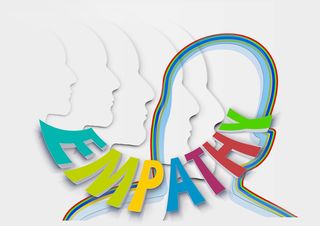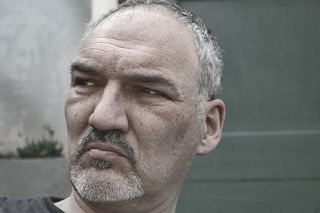ARTICLES: HOUSE OF SOLITUDE
Michel de Montaigne (1533-92): On Solitude
Michel de Montaigne represents the consummate literary style of the French Renaissance in his Essays. He is at once an advocate of the classics (the Essays are crammed with quotations from Latin authors) and a modern, conversant with his society, his contemporaries, its temper. Montaigne lived during the seething religious civil wars of France, which formed the heart of his reflections on how an intelligent person copes with a world gone mad.
Ostensibly a neutral during the wars, Montaigne was a middle-class lawyer and civil servant of the king - whoever he happened to be. He was despised by the extremists on both sides of the Catholic-Huguenot wars. The Essays reveal him a fideist, a Stoic, a skeptic; there is an independence of spirit that suggests his allegiance is to none but reason alone, but there is also a melancholy that reveals Montaigne as a resigned soul.
On Solitude is number 39 of scores of essays. He returned to it three times during ten years of editing and emending for publication. Montaigne quotes Juvenal, Horace, Virgil, Persius, Lucretius, Tibullus, Terence, and Propertius, but these are exercises required to display his wide reading and to identify him with the ancients, whom he projects to be saner company. The essence of On Solitude is a stoic acceptance of the stupidity of society and the wisdom of living a life of imagination and virtue. Is this solitude? Not by a strict definition, except that like his true mentors, Seneca and Marcus Aurelius, solitude is the sense of separation in the crowd, the disdain for ambition, the aloofness in the heat of war, the tragic sense of life.
Here are some representative passages:
Contagion is very dangerous in the crowd. One must either imitate the vicious or hate them. Both these things are dangerous: to imitate them because they are many, and to hate them because they are unlike us.
The wise person will flee the crowd, endure it if necessary but given the choice, choose solitude. We are not sufficiently rid of vices to have to be contending with those of others.
The aim of solitude is to live more at leisure and at one's ease.
Exchanging one trouble for another is the cycle of ambition, avarice, irresolution, fear and lust pursuing the individual who thinks it sufficient to change career or livelihood in order to change himself. But it pursues the solitary into "cloisters and schools of philosophy." "Neither deserts, nor rocky caves, nor hair shirts, nor fastings will free us of them."
It is not enough to have gotten away from the crowd, it is not enough to move: we must get away from the gregarious instincts that are within us, we must sequester ourselves and repossess ourselves.
Seneca said that we are all chained to fortune: some chains are gold, others more base. This may be inferred as a social condition, but Montaigne (without quoting this passage) offers us a psychological angle by saying that the chains are our own fashioning, the cravings and vices pursuing us throughout life. He quotes Lucretius to demonstrate the philosophical import of this necessity to "purge our heart."
We must take the soul back and withdraw it into itself; that is the real solitude, which may be enjoyed in the midst of cities and the courts of kings; but it is best enjoyed alone.
This is Montaigne's Stoic compromise versus that of Lao-Tzu or the Desert Fathers: to continue to reside in the world but assume one is not of the world. It is the heart of the issue, and Montaigne knows what our ideal should be:
Now since we are undertaking to live alone and do without company, let us make our contentment depend on ourselves; let us cut loose from all the ties that bind us to others; let us win from ourselves the power to truly live alone and at our ease.
He tries to identify what this solitude should consist of, revealing his own loyal but aloof fidelity: "We should have wife, children, goods, and above all, health, if we can; but we must not bind ourselves to them so strongly that our happiness depends on them."
A discourse on love and what Buddhists call loving-kindness would help elaborate and hone this noble ideal, despite the apparant sang-froid of Montaigne. Following is his most famous line:
We must reserve a back shop all our own, entirely free, in which to establish our real liberty and our principal retreat and solitude.
But the remainder of On Solitude suggests that solitude is retirement from the world, or at least from public service and civic obligation. Montaigne considers solitude a regard for a life devoted to others, a welcome relinquishing of social ties.
"Even in retirement we should not be held captive by anything, neither pleasures nor desires." Montaigne disagrees with Pliny's advice to use solitude to devote oneself to study, for even books and learning, he says, are a tyranny. "Books are pleasant; but if by associating with them we end by losing gaiety and health, the best parts of us, let us leave them." "I like only pleasant and easy books which entertain me," he declares, "or those that console me and counsel me to regulate my life and my death."
And Montaigne rejects that final temptation offered by Pliny's version of retirement: reputation, fame, glory, and the glow that accompanies the worldly man into his autumn years.
We must do like the animals that rub out their traces at the entrance to their lairs. Seek no longer that the world should speak of you, but how you should speak to yourself. Retire into yourself, but first prepare to receive yourself there; it would be madness to trust in yourself if you do not know how to govern yourself. ... Borrow nothing except from yourself, arrest your mind and fix it on definite and limited thoughts, and rest content with them, without any desire to prolong life and reputation.
Adhere to these simple guidelines to a productive solitude, advises Montaigne, not to the "ostentatious and talky philosophy" of classical authors whose concept of retirement from the world is vainglory.
¶
BIBLIOGRAPHICAL REFERENCES
Quotations adapted from Montaigne's Complete Essays, translated by Donald M. Frame. Stanford, CA: Stanford University Press, 1958. Reprinted in The Complete Works: Essays, Travel Journal, Letters, translated by Donald M. Frame with an introduction by Stuart Hampshire. New York : Knopf, 2003.



